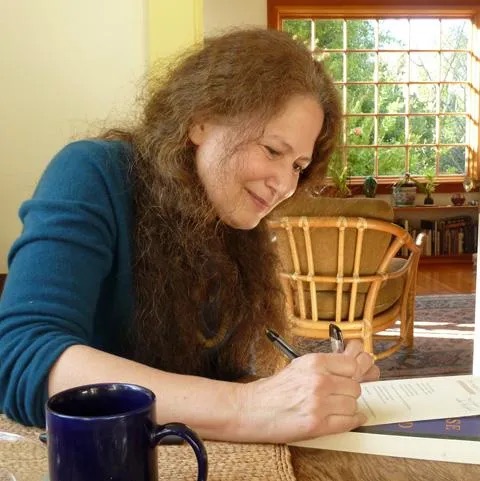Summary:
Prize-winning international poet, translator, and essayist Jane Hirshfield's poetry speaks to the central issues of human existence: desire and loss, impermanence and beauty, and the many dimensions of our connection with others. She tells NWP why she writes. Originally published on March 30, 2020 Why do I write?
Why do I write?
I write because to write a new sentence, let alone a new poem, is to cross the threshold into both a larger existence and a profound mystery. A thought was not there, then it is. An image, a story, an idea about what it is to be human, did not exist, then it does. With every new poem, an emotion new to the heart, to the world, speaks itself into being. Any new metaphor is a telescope, a canoe in rapids, an MRI machine. And like that MRI machine, sometimes its looking is accompanied by an awful banging. To write can be frightening as well as magnetic. You don’t know what will happen when you throw open your windows and doors.
Why write? You might as well ask a fish, why swim, ask an apple tree, why make apples? The eye wants to look, the ear wants to hear, the heart wants to feel more than it thought it could bear…
The writer, when she or he cannot write, is a person outside the gates of her own being. Not long ago, I stood like that for months, disbarred from myself. Then, one sentence arrived; another. And I? I was a woman in love. For that also is what writing is. Every sentence that comes for a writer when actually writing—however imperfect, however inadequate—every sentence is a love poem to this world and to our good luck at being here, alive, in it.
Vest
Jane Hirshfield —1953-
I put on again the vest of many pockets.
It is easy to forget
which holds the reading glasses,
which the small pen,
which the house keys,
the compass and whistle, the passport.
To forget at last for weeks
even the pocket holding the day
of digging a place for my sister’s ashes,
the one holding the day
where someone will soon enough put my own.
To misplace the pocket
of touching the walls at Auschwitz
would seem impossible.
It is not.
To misplace, for a decade,
the pocket of tears.
I rummage and rummage —
transfers
for Munich, for Melbourne,
to Oslo.
A receipt for a Singapore kopi.
A device holding music:
Bach, Garcia, Richter, Porter, Pärt.
A woman long dead now
gave me, when I told her I could not sing,
a kazoo.
Now in a pocket.
Somewhere, a pocket
holding a Steinway.
Somewhere, a pocket
holding a packet of salt.
Borgesian vest,
Oxford English Dictionary vest
with a magnifying glass
tucked inside one snapped-closed pocket,
Wikipedia vest, Rosetta vest,
Enigma vest of decoding,
how is it one person can carry
your weight for a lifetime,
one person
slip into your open arms for a lifetime?
Who was given the world,
and hunted for tissues, for chapstick.
— 2018

